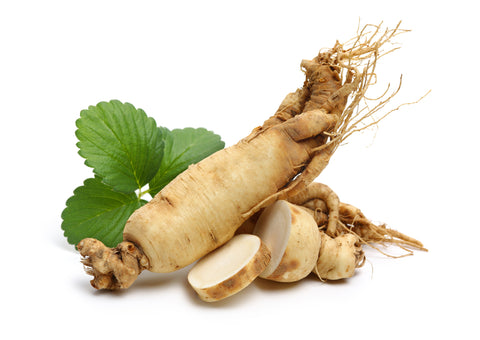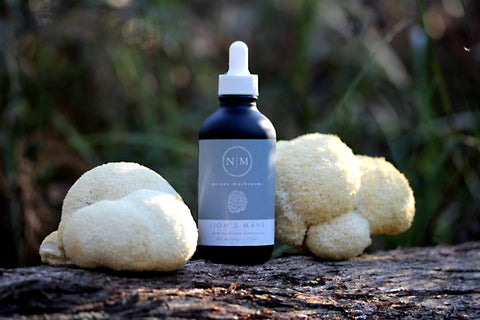
Nootropics — what are they?

Has someone dropped the word nootropics lately and left you scratching your head?
… Nootropics. Er, what are they?
Well, the world of nootropics might be more familiar than you realise — an umbrella term for substances that can positively impact cognitive function.
And since championing foods for their positive influence on physical or mental health is something we love here at Natura Mushrooms — we couldn’t help but shine a light on nootropic plants and fungi (and how we can incorporate them into our diets).
So let’s go.
What are nootropics?
Often loosely defined as “smart drugs” or “cognitive enhancers”, nootropics are just that. A class of molecules — both natural and synthetic — known to positively impact cognitive function.
First recognised in Western science by the Romanian chemist Corneliu Giurgea in 1972, nootropics have been harnessed for as long as humans can remember. He defined nootropics with a list of criteria emphasising minimal side effects, memory enhancement, improved behaviour, and protection from brain injury (both physical and chemical).
Today, nootropics have become a multi-billion dollar industry with prescription medication, natural supplements and synthetic compounds.
So, with all these choices available, we’ve compiled a list of the most common naturally occurring nootropics (hint: they might even grow in your backyard).
5 common natural nootropics
Found in unexpected places, from flowering herbs to root systems, the 5 natural nootropics we’re about to explore have been found to positively impact brain health with minimal side effects (keeping in line with Dr Giurgea’s criteria).

1. Caffeine
Without a doubt, the title for the world’s most famous nootropic (and probably a key part of your morning routine) goes to caffeine. The not-so-humble nootropic that’s there for you in the mornings when you need to kick into gear.
Caffeine works in relatively small doses for an immediate effect, with the best results seen when paired with L-Theanine [1] (a nootropic commonly found in green tea — more on that in a minute).
When it comes to caffeine, everyone has their own level of tolerance. AKA the finely tuned balance of feeling “gee-d up and ready without the jitters”.
But hey, if you’re on the hunt for a brain boosting addition to your day and caffeine isn’t for you, it might be time to explore something new.

2. L-Theanine (commonly found in green tea)
Readily absorbed by the body within 30 - 45 minutes of drinking, green tea L-theanine has shown nootropic effects with a positive change in mood and increased focus.
Green tea as an L-Theanine supplement can have just as much caffeine as your morning coffee, only without the “jitters” and “crash”. Many put this down to the visibly calming effects L-theanine has on brainwaves, while increasing both alpha (alert relaxation) and beta (creative) brainwaves. This has become evident through controlled animal studies [2] — but as always, more human studies will be beneficial.
3. Lion’s mane mushroom
Are you the energy-loving, jitter-hating type?
Us, too.
Let us introduce the lion’s mane mushroom. Known for its other-worldly appearance — often likened to a pom-pom, hedgehog or old man’s beard — this powerful shroom sure packs a punch. [3]
Lion’s mane is championed for its ability to boost Nerve Growth Factor (NGF) thanks to the brain loving compounds “hericenones” and “erinacines”. These compounds can pass through the blood-brain-barrier and stimulate nerve growth, with research supporting this may lead to improvements in cognition, learning and memory. [4]

4. Rhodiola rosea
Flowering in golden globes across Northern Europe and East Asia, this floral herb has been used for centuries in Chinese Medicine to fight depression, anxiety and mental fatigue. [5]
Current research suggests a balance of salidroside and rosavins found in the whole plant extract provide the most powerful nootropic effects.
These compounds slow down the brain’s natural process of breaking down the feel-good neurotransmitters, allowing them to remain in your system for longer. [6]
Playing the long game, rhodiola rosea is commonly used at a low dose for its accumulative effects.

5. Ginseng
Known amongst friends as the “man root”, ginseng grows into twisted shapes with thick bodies and spindly legs. It’s embraced for its anti-inflammatory properties, making it a staple ingredient in traditional Chinese Medicine.
And today, ginseng has gained popularity across the globe as a fast-acting cognitive enhancer, deserving a spot on our list. Although the science is yet to understand the cause of ginseng’s nootropic powers, some studies have shown significant cognitive improvement during sustained mental efforts. [7]
Early research suggests that continued exposure encourages a resistance and decrease in nootropic effects. Watch this space.
Keen to add lion’s mane mushroom into your routine?
We may be biased but lion’s mane seems like the perfect place to start with nootropics for that razor sharp focus (without any unwanted side effects).
At Natura Mushrooms, we have Lion’s Mane Mushroom Powder and Lion’s Mane Liquid Extract. Add them to your smoothie, coffee or main meal. We recommend taking:
- ½ teaspoon of Lion’s Mane Powder daily, or
- 2 ml of Lion’s Mane Liquid Extract daily
And did you know that we grow our own lion’s mane on our 100% off-grid farm in Gippsland, Victoria? We only use organic waste materials, fresh air and water – just as nature intended.
Resources:
- https://nootropicsexpert.com/caffeine/#caffeine-side-effects
- https://pubmed.ncbi.nlm.nih.gov/10737183/
- https://naturamushrooms.com/blogs/news/lions-mane-nootropic?_pos=7&_sid=b0e6a9871&_ss=r
- https://nootropicsexpert.com/lions-mane/#:~:text=Lions%20Mane%20as%20a%20nootropic,produce%20more%20Nerve%20Growth%20Factor.
- https://www.naturalnootropic.com/rhodiola-rosea-everything-you-need-to-know/
- https://www.naturalnootropic.com/rhodiola-rosea-everything-you-need-to-know/
- https://pubmed.ncbi.nlm.nih.gov/15982990/


